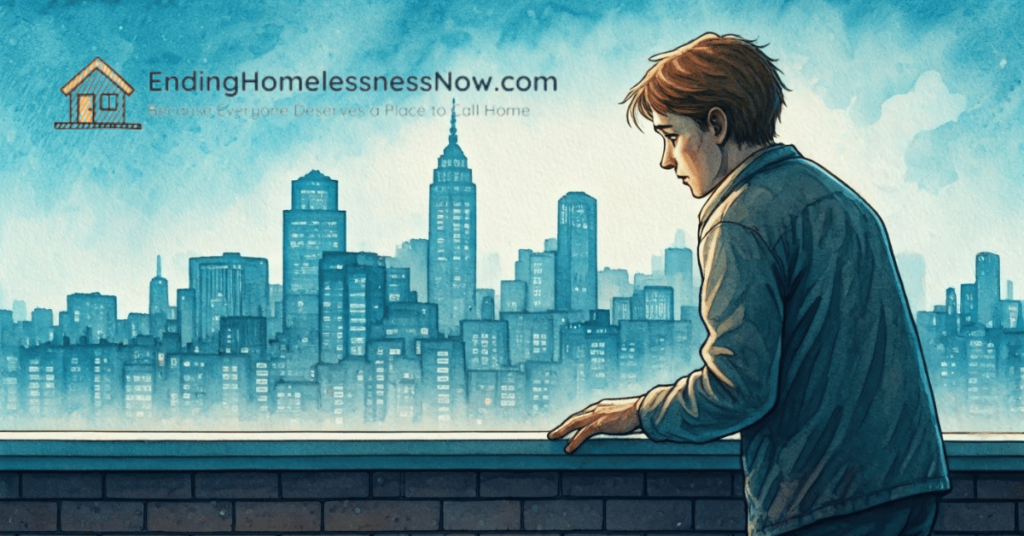People become homeless for many different reasons, but losing a job is one of the leading causes. When someone loses their job, they lose their regular income, which makes it hard to pay for basic needs like food and housing. This problem worsens when there aren’t enough affordable places to live.

How Job Loss Leads to Homelessness
When people lose their jobs, they often try many ways to stay in their homes. They might use their savings, borrow money, or ask family and friends for help. But these solutions usually don’t last long. As their money runs out, they struggle to pay rent and bills and buy food. This puts them at risk of losing their home.
Unemployment benefits are supposed to help, but they often aren’t enough. These benefits usually only cover a small part of what someone used to earn, and they don’t last very long – sometimes just a few weeks or months.
To make things worse, some people can’t get these benefits because of strict rules about who qualifies.
Jobs Most at Risk
Some jobs are more likely than others to disappear during challenging economic times. We’ve seen this happen in many industries recently.
For example, tech companies like Google, Microsoft, and Amazon cut thousands of office jobs in 2023 and early 2024. Major retailers like Macy’s and REI closed stores and laid off workers as more people shopped online. Social media companies like Meta (Facebook) and X (formerly Twitter) also reduced their workforces significantly.
These job losses happened for different reasons. Factory workers often lose their jobs because of machines doing their work or companies moving jobs to other countries. Store workers face job losses because more people shop online.
Hotel and restaurant workers can lose their jobs during economic downturns when fewer people travel or eat out. Oil and gas workers might lose their jobs when fuel prices change or as more people use renewable energy. Truck drivers and other transportation workers can lose their jobs because of new technology or changes in fuel prices.
The Housing Problem
Finding an affordable place to live is very difficult for many people, especially after losing a job. The numbers tell a clear story about this problem.
In the United States, a full-time minimum wage worker cannot afford a two-bedroom apartment in any state. They would need to work 96 hours per week (nearly two and a half full-time jobs) to afford an average two-bedroom rental.
The cost of housing takes up too much of people’s income. Experts say housing should cost no more than 30% of what someone earns. However, more than 11 million American families spend over half their income on rent, leaving very little money for other basic needs.
For example, if someone earning $2,000 per month spends $1,000 on rent, they have only $1,000 left for everything else – food, utilities, transportation, healthcare, and any unexpected expenses. A single emergency, like a $500 medical bill, can make it impossible to pay rent that month.
Finding Work While Homeless
Getting a job is extra complicated for people who are homeless. They face many challenges:
- They might not have a way to get to work
- They might not have access to computers to search for jobs
- If unemployment lasts a long time, they might have gaps in their work history that make employers hesitate to hire them
- They might feel ashamed about being homeless, which can make job interviews harder
Many organizations try to help by offering job training, teaching interview skills, and working with local businesses that are willing to hire people experiencing homelessness.
Losing a Job Leads to Additional Problems
The problems caused by unemployment go beyond just money issues. In addition to being homeless, losing a job can mean losing health insurance and suffering emotional stress. It can also break social ties and weaken community connections.
Common Misunderstandings
Many people think homelessness happens because of personal choices or drug use. And sometimes this is true. But most people become homeless because of things they can’t control, like losing a job during an economic downturn or not being able to find affordable housing.
Understanding this truth is essential because it helps communities create better solutions to prevent and end homelessness.
What Helps
Communities can prevent homelessness in several ways:
- Building more affordable housing is crucial. With more low-cost options for places to live, people can afford to be more flexible in the jobs they take.
- Job training programs are instrumental in helping individuals adapt to changing job markets. These programs equip them with the necessary skills for jobs currently in demand, increasing their employability and reducing the risk of homelessness.
- Quick housing assistance can help people who just lost their jobs stay in their homes or find new places to live quickly. This short-term help can prevent them from becoming homeless while they look for new work.
Together, these solutions can help people keep their homes even after losing their jobs, or help them find stable housing again if they do become homeless.



